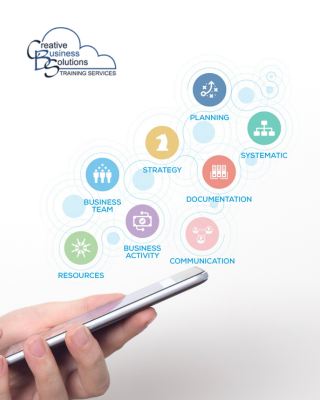
In the whirlwind of busy season, you may find yourself caught in a precarious balancing act between meticulously planning your every move and embracing the inevitable chaos that lies ahead. The question that plagues many accounting professionals is this: meticulously plan to fail, or fail to plan?
While thorough planning can provide a roadmap for success, it can also become a rigid constraint, limiting your ability to adapt to the unexpected twists and turns that busy season often throws your way. On the other hand, failing to plan altogether can leave you feeling lost and overwhelmed, adrift in a sea of unanswered questions.
Fortunately, you don't have to choose between these extremes. Microsoft 365 Business emerges as your steadfast ally, offering tools that empower you and your team to navigate the treacherous waters of busy season confidently.

Introduction
During busy season, clients flood accounting and bookkeeping practices, seeking to meet the CRA's tax filing deadline. The offices are busy, with accounting professionals working long hours to prepare accurate tax returns and meet urgent demands. Despite the stress, the teams work together to tackle the challenges of the tax season and breathe a sigh of relief when the last return is submitted.
Effective planning is critical for accounting or bookkeeping practices to avoid chaos, and Microsoft 365 Business can provide essential support to help organizations stay on track. With its powerful suite of project management, communication, and collaboration tools, Microsoft 365 Business can help teams work more efficiently, streamline workflows, and stay focused on their goals, enabling businesses to thrive in today's fast-paced and constantly changing business environment.
The Consequences of Failing to Plan
Failing to plan can lead to a variety of negative consequences for individuals and organizations alike. Without a clear roadmap for achieving goals, it's easy to get sidetracked and lose focus, leading to missed deadlines, incomplete projects, and wasted resources. In business, inadequate planning can result in lost opportunities, reduced profits, and even failure.
For example, an accounting or bookkeeping practice that launches a new service offering without a solid marketing plan may struggle to reach its target audience, resulting in poor client engagement and lost revenue. Similarly, a team that doesn't plan effectively for a project may struggle to meet deadlines, leading to stress, burnout, and a subpar end result.
In addition to these practical consequences, failure to plan can have psychological effects. It can lead to feelings of overwhelm, frustration, and anxiety, as individuals or teams struggle to keep up with demands and deadlines. Conversely, having a clear plan in place can help reduce stress and increase motivation, as people feel more in control and confident in their ability to achieve their goals.
In short, planning is essential for success in all areas of life. In the words of Benjamin Franklin, "Failing to plan is planning to fail." Whether you're an individual or part of an organization, creating a clear roadmap for achieving your goals can help you stay focused, efficient, and effective while avoiding the negative consequences of failing to plan.

Benefits of Planning with Microsoft 365 Business
Planning is a critical aspect of any business, and Microsoft 365 Business provides essential support to help organizations stay on track. With its powerful suite of project management, communication, and collaboration tools, Microsoft 365 Business can help teams work more efficiently, streamline workflows, and stay focused on their goals.
One of the key benefits of Microsoft 365 Business is its collaboration and communication tools. Microsoft Teams, for instance, allows teams to communicate seamlessly through chat, video conferencing, and file sharing. This feature enables team members to work together, even when physically apart, ensuring greater productivity and better outcomes.
SharePoint is another valuable collaboration tool. It enables teams to share files, collaborate on documents in real-time, and access information from anywhere at any time. This feature helps teams stay connected and work together on projects regardless of their location.
Microsoft 365 Business provides essential tools to help businesses and individuals plan, collaborate, and communicate more effectively. With its powerful features, such as Teams and SharePoint, Microsoft 365 Business can help teams work more seamlessly, streamline workflows, and stay focused on their goals, enabling businesses to thrive in today's fast-paced and constantly changing business environment.

Time Management and Productivity Enhancements
Microsoft 365 Business also supports time management and productivity enhancements through Outlook, Planner, and To Do. These key tools help users schedule and prioritize tasks effectively. They automate tasks, set reminders, and help teams stay organized, ensuring they are on top of their game and can achieve their goals more efficiently.
Outlook is a versatile tool that helps users manage their emails, calendars, and contacts in one place. With its powerful scheduling features, Outlook enables users to schedule meetings, appointments, and tasks and set reminders to meet deadlines. Users can also prioritize their emails and tasks and even automate certain tasks, like email responses, so that they can focus on more important tasks.
Planner is another useful tool that helps teams manage their tasks and collaborate more effectively. With Planner, teams can create tasks, assign them to team members, and track progress in real-time. This feature helps teams stay organized and ensures that deadlines are met. Additionally, Planner integrates with other Microsoft 365 Business apps like Teams and SharePoint, enabling you and your team to work seamlessly across different platforms.
To Do is a powerful tool that helps individuals manage their tasks and stay organized. With its simple, user-friendly interface, To Do enables users to create to-do lists, set reminders, and prioritize tasks. This feature helps individuals stay focused, efficient, and effective and avoid the negative consequences of failing to plan.
Microsoft 365 Business is a comprehensive tool suite designed to support time management and boost productivity. Its versatile features, such as Outlook, Planner, and To Do, enable users to schedule and prioritize tasks effectively, automate them, set reminders, and stay organized. These features allow users to keep on top of their game and achieve their goals more efficiently.

Data Security and Compliance
Microsoft 365 Business provides robust security features that help protect sensitive business information and maintain compliance during busy seasons. Data security and compliance are critical aspects of accounting and bookkeeping practices that cannot be overlooked. Microsoft 365 Business offers the necessary tools to ensure your data is protected and compliant with regulations.
One of the critical security features of Microsoft 365 Business is encryption. With Microsoft's advanced encryption technologies, your data is protected both at rest and in transit. Your data is encrypted when it is stored on Microsoft servers and transmitted between devices. This technology helps prevent unauthorized access and protects your data from cyber threats.
Another important security feature is two-factor authentication. Two-factor authentication provides an extra layer of security by requiring a second form of verification, in addition to a password, to access your account. This additional layer of security helps prevent unauthorized access, even if your password is compromised. Microsoft 365 Business offers multiple options for two-factor authentication, including text messages, phone calls, and authenticator apps.
Data retention policies are also an important aspect of security and compliance. Microsoft 365 Business allows you to set retention policies for your data, determining how long it is retained and when it is deleted. These policies help ensure that sensitive information is not kept longer than necessary and help ensure compliance with regulations.
In addition to these security features, Microsoft 365 Business helps maintain compliance with various regulations, including HIPAA, GDPR, PIPEDA, and others. Microsoft provides compliance documentation and tools to help ensure that your business adheres to these regulations.
Overall, Microsoft 365 Business provides robust security features that help protect sensitive business information and maintain compliance during busy season and beyond. With its advanced encryption technologies, two-factor authentication, and data retention policies, Microsoft 365 Business helps ensure your data is protected and compliant with regulations.
Cost-Effective and Scalable Solution
Using Microsoft 365 Business in accounting and bookkeeping practices is not only a secure solution for protecting sensitive business information but also a cost-effective and scalable one. Microsoft 365 offers subscription-based pricing, enabling businesses of all sizes to access enterprise-level tools and technology without the high upfront costs associated with traditional software purchases.
The subscription-based pricing model allows businesses to choose a plan that best suits their needs based on the number of users and features required. This scalable solution can be customized according to business requirements, ensuring that the business pays only for what it needs and can easily scale up or down as needed. This model is particularly beneficial for accounting and bookkeeping practices that may have fluctuating staffing needs throughout the year.
In addition to being affordable and flexible, Microsoft 365 offers a wide range of features and tools that help streamline accounting and bookkeeping practices. These include tools for document management, communication, collaboration, and data analysis. The cloud-based platform enables users to access their data from anywhere, anytime, making remote work and collaboration convenient.
Microsoft 365 is a cost-effective and scalable solution for accounting and bookkeeping practices. Its subscription-based pricing model allows businesses to pay only for what they need while accessing enterprise-level tools and technology. The suite of features and tools available in Microsoft 365 helps streamline accounting and bookkeeping practices, making it a valuable investment for practices of all sizes.



























